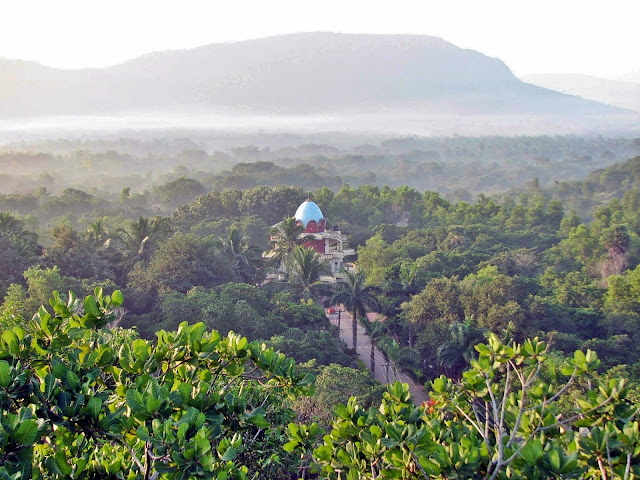 |
| Devipuram |
Vira Chandra: Can one truly understand a mystical path without walking it?
This isn’t just an academic question—it touches something deeply existential.
Some scholars of esoteric traditions have crossed that threshold, choosing not only to study but to enter the transformative current of initiation. Figures like Alexis Sanderson, Bettina Baumer, Lillian Silburn, and Mark Dyczkowski stand out—not simply for their knowledge, but for the depth that comes from having internalized what they study. Their contributions to the understanding of Kashmir Shaivism, for instance, are not merely learned but lived.
And yet, there are those who, outside formal initiation, have still touched the essence. Henri Corbin is a radiant example. Though not part of a lineage, he felt deeply into esoteric Islam. His insights into symbolic vision, the imaginal world, and the hermeneutics of the heart have moved seekers far beyond the walls of academia. Is this not also a kind of inner seeing?
Abhinavagupta, quoting the Kiraṇa Tantra in his Tantrāloka (13.162), reminds us that true knowledge can arise in multiple ways:
gurutaḥ śāstrataḥ svataḥ
From the Guru, from the scriptures, or from within.
These are not competing sources. When received with humility, śāstra becomes luminous, the guru becomes embodiment, and inner realization (svataḥ) arises—not from clever speculation, but from the fire of longing and the grace that meets it. They are tributaries flowing into the same river of awakening.
But the more I walked this path, the more I saw that the real divide isn’t between initiated and uninitiated, or even between scholar and mystic. It lies somewhere deeper.
I've met many brilliant scholars. Some had dazzling intellects and could quote śāstra like second nature. But often, I felt something missing—some fragrance, some softness, some willingness to be undone. The very structure of academia tends to reward cleverness over surrender, confidence over silence. Ego clings to the role of “knower.” And this role is hard to drop when your life, identity, and status revolve around it.
Somehow, the longer you stare into university systems, the harder it becomes to see through yourself.
Or, as I’ve come to joke:
PhD = Perpetual Humility Deficit.
Of course, I don’t say this with contempt—I say it as someone who has longed to see the sacred sparkle through academic robes, and often walked away with a quiet ache. Most scholars I encountered (both personally and via books) knew everything about the Mystery, but few seemed to breathe with it. The exception, for me, was Gopinath Kaviraj—a rare being whose scholarship was soaked in inner realization, whose words trembled with presence.
It’s not that scholarship is inherently opposed to mysticism. It’s that true mysticism demands ego-death, and most systems—religious or academic—are not built to support that. Even formal initiation can become a new role, a new status, a backstage pass for intellectual curiosity. The difference isn’t who has access to teachings—it’s who lets those teachings burn them alive.
The real line is this: Are you here to be transformed, or are you here to remain intact?
Are you willing to lose your cleverness, your status, your identity as a “knower”—in order to become transparent to the Real?
The heart knows when it is being spoken to from truth. And the deepest initiation, more often than not, is not bestowed by any human hand. It comes unbidden—through grace, through longing, through the secret fire that rearranges one’s life from within.










No comments:
Post a Comment